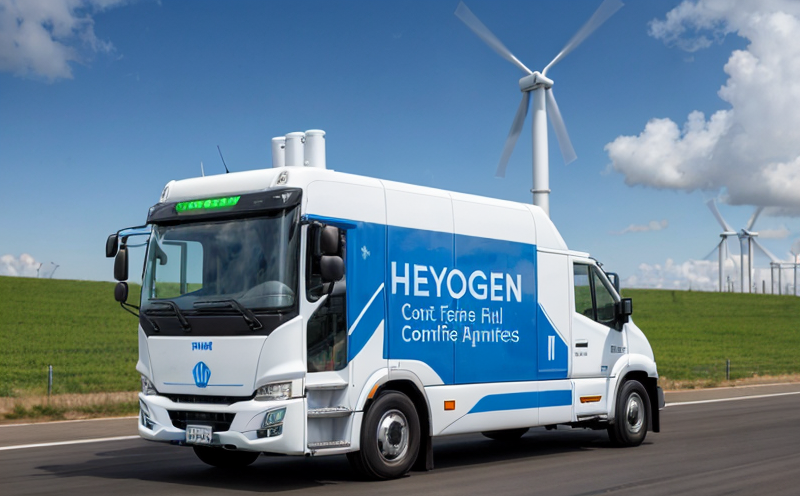Hydrogen Fuel Cells Certification and Standards: A Comprehensive Overview
As the world shifts towards cleaner energy sources, hydrogen fuel cells have emerged as a promising solution for reducing greenhouse gas emissions and dependence on fossil fuels. With their high efficiency, zero-emission capabilities, and versatility in applications, hydrogen fuel cells are being increasingly adopted in various industries. However, to ensure safety, reliability, and performance, it is crucial to establish robust certification and standards frameworks.
Overview of Hydrogen Fuel Cell Certification and Standards
Hydrogen fuel cell certification involves verifying that a product or system meets specific requirements and guidelines set by regulatory bodies, industry associations, or standards organizations. This process ensures that hydrogen fuel cells are designed, manufactured, and tested according to stringent criteria, which is critical for public safety, environmental sustainability, and efficient operation.
Standards for hydrogen fuel cells typically cover aspects such as:
Safety: leakage, explosion, fire, electrical shock
Performance: efficiency, power density, reliability
Emissions: greenhouse gas emissions, air quality
Interoperability: compatibility with infrastructure, grid stability
Key Certification Bodies and Standards
Several organizations play a significant role in developing and enforcing certification standards for hydrogen fuel cells:
International Electrotechnical Commission (IEC): Develops and publishes international standards for electrical equipment, including hydrogen fuel cells.
Society of Automotive Engineers (SAE): Establishes standards for automotive applications, including hydrogen fuel cell vehicles.
American Society for Testing and Materials (ASTM): Publishes standards for various materials, including those used in hydrogen fuel cells.
Detailed Standards and Certifications
The following two sections provide detailed explanations of key standards and certifications:
IEC 62282-1:2017 - Fuel cell modules for portable applications
Specifies requirements for fuel cell modules for portable applications, such as laptop computers or mobile phones.
Covers aspects like performance, safety, and durability.
Requirements include:
Maximum power density
Operating temperature range
Electrical insulation resistance
Fire-resistant materials
SAE J2719:2015 - Fuel Cell Electric Vehicle (FCEV) Performance Test Code
Defines test procedures for evaluating the performance of fuel cell electric vehicles.
Covers aspects like efficiency, power output, and range.
Requirements include:
Measurement methods for electrical and thermal performance
Testing for durability and reliability
Emissions testing
QA Section
Q: What are the main differences between IEC 62282-1 and SAE J2719?
A: IEC 62282-1 focuses on fuel cell modules for portable applications, while SAE J2719 addresses FCEV performance testing. Although both standards deal with hydrogen fuel cells, they cater to distinct market segments.
Q: How do certification bodies ensure compliance with evolving regulations and standards?
A: Certification bodies continuously monitor regulatory developments and update their standards accordingly. They also engage in dialogue with industry stakeholders, governments, and other organizations to stay informed about emerging issues and best practices.
Q: Can you explain the significance of interoperability in hydrogen fuel cell certification?
A: Interoperability ensures that different components or systems from various manufacturers can work together seamlessly, facilitating the widespread adoption of hydrogen fuel cells. This is crucial for large-scale deployment and infrastructure development.
Q: What are some potential challenges in implementing hydrogen fuel cell standards worldwide?
A: Variations in regional regulations, differences in safety requirements, and conflicting industry standards may hinder international cooperation on certification. Additionally, the complexity of developing harmonized standards for emerging technologies can be a challenge.
Q: How do manufacturers ensure that their products meet both domestic and international certification standards?
A: Manufacturers typically need to comply with multiple sets of regulations and standards depending on the market they operate in. This requires close collaboration between manufacturers, regulatory bodies, and industry associations to establish clear guidelines and facilitate compliance.
Q: What role does public policy play in supporting hydrogen fuel cell certification and adoption?
A: Governments can incentivize the development and deployment of hydrogen fuel cells through policies such as tax credits, grants, or subsidies. They also often sponsor research initiatives and public awareness campaigns to promote the benefits of clean energy technologies like hydrogen fuel cells.
Q: Can you provide examples of successful implementation of hydrogen fuel cell certification standards?
A: Several countries have implemented effective certification programs for hydrogen fuel cells, including Japan (with its FCHJ program), Germany (through the National Hydrogen Association), and South Korea (with the Ministry of Trade, Industry and Energys initiative). These initiatives demonstrate the potential for harmonized international standards to support large-scale adoption.
Q: What are some emerging trends in hydrogen fuel cell certification?
A: Increasing focus on sustainability and environmental impact is driving manufacturers to develop more efficient, recyclable, and eco-friendly products. This shift towards greener technologies may lead to new standards and certifications prioritizing aspects like carbon footprint, end-of-life recycling, or material selection.
Conclusion
Hydrogen fuel cells offer a promising solution for reducing greenhouse gas emissions and dependence on fossil fuels. Robust certification and standards frameworks are essential for ensuring the safe, efficient, and reliable operation of these systems. As the industry continues to evolve, it is crucial to stay informed about emerging trends, challenges, and developments in hydrogen fuel cell certification and standards.
References
1. International Electrotechnical Commission (IEC). (2017). IEC 62282-1:2017 - Fuel cell modules for portable applications.
2. Society of Automotive Engineers (SAE). (2015). SAE J2719:2015 - Fuel Cell Electric Vehicle (FCEV) Performance Test Code.
3. American Society for Testing and Materials (ASTM). (2020). ASTM F1947-20: Standard Specification for Hydrogen Generation by Electrolysis.
4. Hydrogen Europe. (2020). Certification and standards for hydrogen fuel cells.
Note: The references provided are a selection of relevant sources, but this article is not an exhaustive list of all relevant documents or organizations involved in hydrogen fuel cell certification and standards.

































